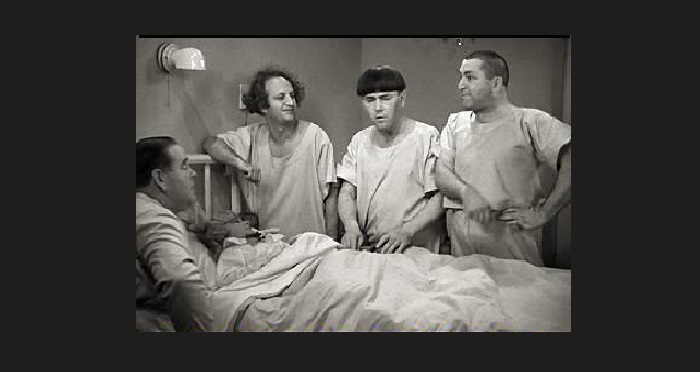Thus far, one can only deem the CDC response to the Ebola an unmitigated disaster.
Most Americans seem to view the CDC Three Stooges Show as typical big-government incompetence, with a few conspiracy theorists proposing more sinister scenarios. I’m not aware of anybody heaping praise on the CDC for its outstanding work.
Public response to the CDC roughly parallels four possible ways to view centralized government in general.
- It operates fairly efficiently, serves the public and generally does a good job accomplishing its goals.
- It operates inefficiently with generally good intentions to serve the people, wastes resources through incompetence and fraud, generally fails to accomplish its goals, and furthermore, creates worse problems through unintended and unforeseen consequences.
- Operates inefficiently in a manner intended to consolidate and retain its own power, manipulates the public through propaganda, serves the interests of the political class and the rich elite, and opportunistically capitalizes on crises and social problems to gain popular support. Occasionally manufactures crises, particularly to advance its foreign policy.
- Operates efficiently, intentionally creates crises to manipulate the population, controls the media and other private institutions and serves only a very well organized group of elites.
Pause and think about it. Where do you fall?
Observation and rational analysis pretty well eliminates one. That leaves options two through four. Personally, I fall somewhere in the two-three realm.
But regardless of where your views lie within the given spectrum, unless you simply abandon observable reality and cling to the notion that monopolized, centralized government, with its one-size-fits all solutions and tangle of bureaucracies efficiently serves the public, the solution remains the same.
Limit the size, scope and power of central government.
Decentralize. Break up the monopoly. Devolve power.
Or maybe even do away with it all together.




